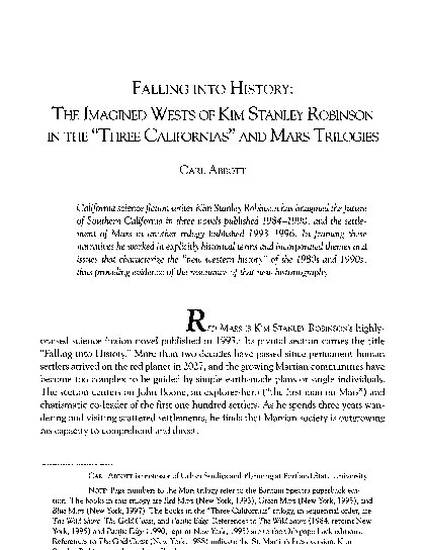
- Kim Stanley Robinson,
- History in literature,
- Science fiction -- History and criticism
Analyzes Kim Stanley Robinson's two science fiction trilogies, the "Three Californias" trilogy '(Wild Shore, Gold Coast,' and 'Pacific Edge),' published during 1984 - 1990, and the Mars trilogy '(Red Mars, Green Mars,' and 'Blue Mars),' published during 1993 - 1996, to show how they incorporate themes of the complexity and contingency involved in settlement of the frontier associated with the "new Western history" of the 1980's - 1990's. The Mars trilogy co-opts the American West's status as a place of resource development when Robinson narrates the conquest of nature through technology. The Orange County trilogy explores, inter alia, intentional communities, economic cooperation, governance within a frontier settlement, and the clash between nature and the human effects on landscape.

This is the publisher's final PDF. Copyright © 2003, Western History Association. Reproduced by permission.